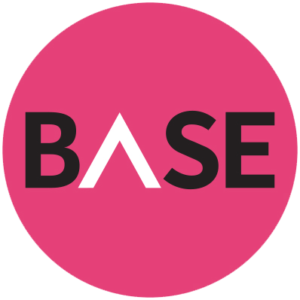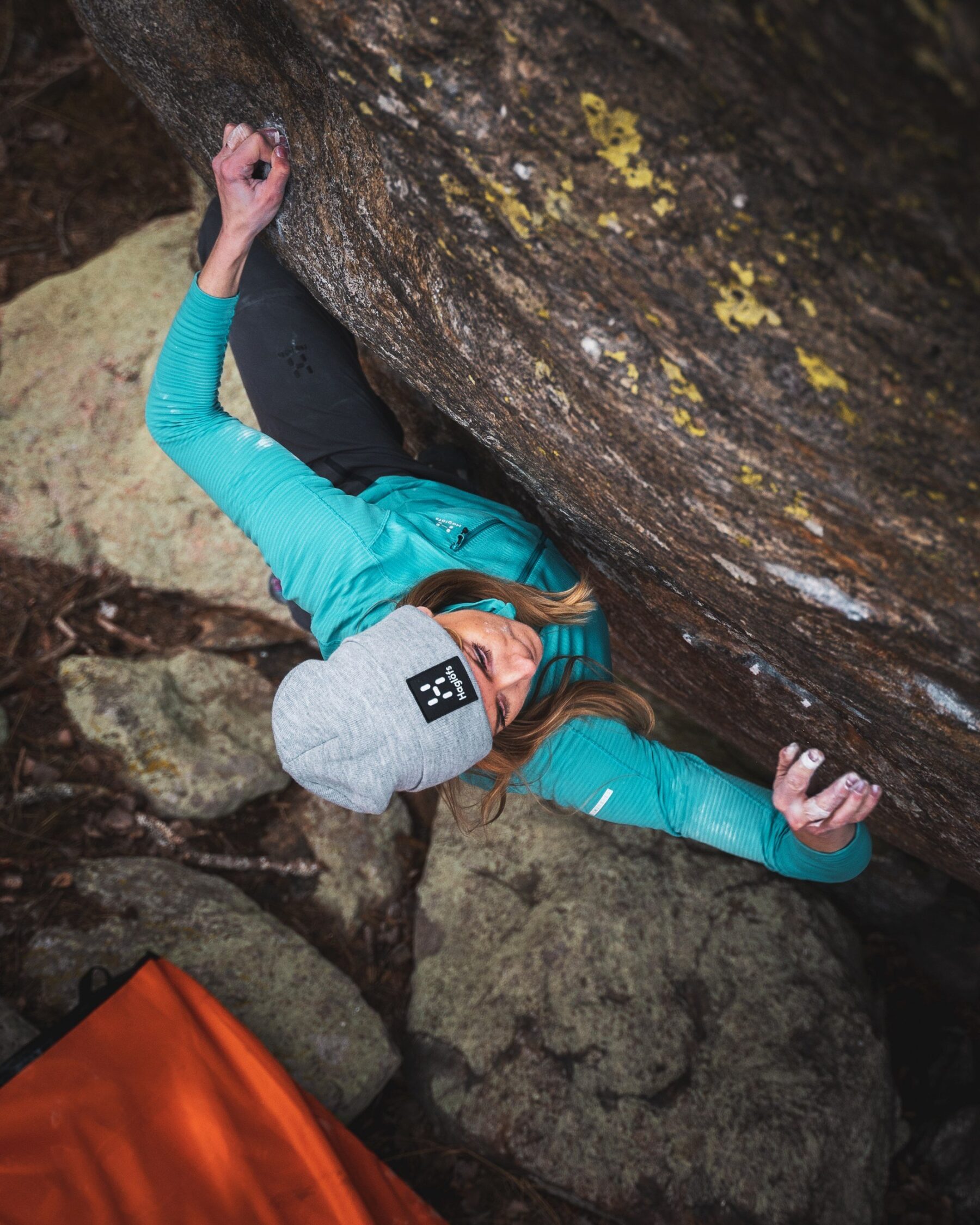Home Interview Interview: Alex Megos on Reconnecting with Rock
Interview: Alex Megos on Reconnecting with Rock
Feature type Interview
Read time 15 min read
Published Aug 20, 2020
Author BASE editorial team
Photographer Ken Etzel
Interview | Patagonia Photography | Ken Etzel & Sam Bie
Like the rest of the world, Alex Megos hasn’t been getting out so much this year, his usual busy travel schedule dictated by international climbing competitions and responsibilities of a professional athlete grinding to a halt as the world grapples with COVID-19. Unlike the rest of us though, Alex’s return to the outdoors marks a historical moment in rock climbing, claiming the first ascent of Bibliographie, Ceüse, in the Hautes-Alpes département of France – a route which took him three years to successfully climb and that he’s graded alongside the very toughest in the world. So tough in fact, currently only one other climb exists in the same category.
We caught up with Alex to find out more about his return to climbing on rock, his experiences during lockdown in Germany, the global issues we face as humanity and what motivates him beyond the send
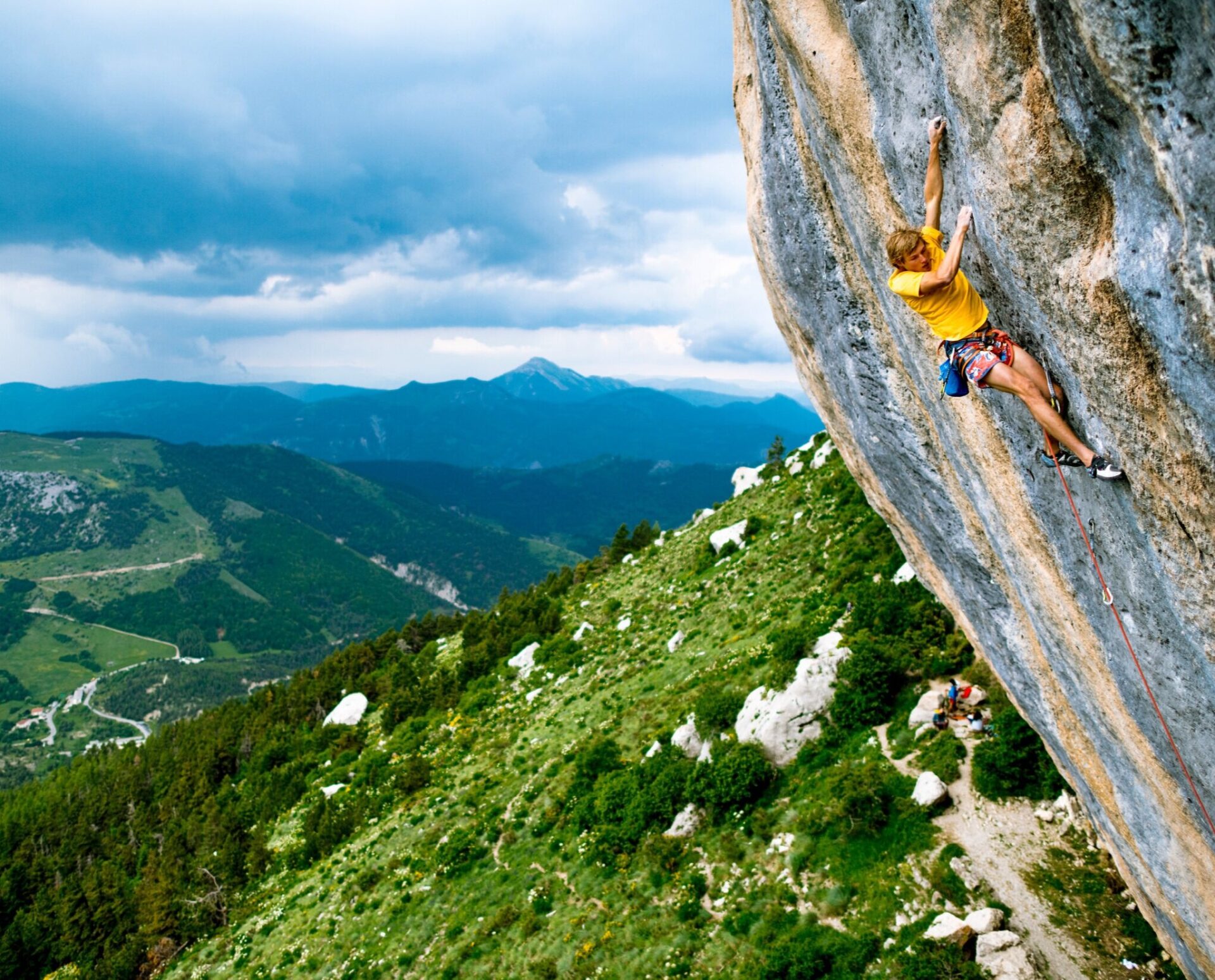
“Sometimes the odds are against you, but it doesn’t mean you don’t have a chance.” Alex successfully makes the first ascent of Bibliographie. © Ken Etzel
Let’s start with the big news. You just became the second ever person to climb 9C, with your first ascent of Bibliographie, Ceüse. Tell us about it.
It was the last day of the trip and, by the evening, it definitely wasn’t looking good after I had messed up the first – and only – try I wanted to do that day. I fell relatively low on the route though, so I decided to give it the infamous ‘one last go’.
All in all, Bibliographie took me around 60 days of effort, over a period of three years, and more specific training than any other project I’ve taken on. As the first ascensionist, you don’t have your perfect beta from the start, you have doubts about whether it is possible, or not, for you – if you are completely missing something, or if you are just not in the best shape.
Independently from the grade, this has been a very valuable experience for me. It marks a personal milestone in my climbing life, one I would have not been able to complete without the support and help of all of my friends and family. Sometimes the odds are against you, but it doesn’t mean you don’t have a chance.
What can you tell us about the three years of effort on the route?
I started working on it in June 2017. I actually came across it by accident more than anything else. I had nothing else to work on at the time, so I tried Bibliographie to see if it was even possible. On my first day, it took me 90 minutes to get to the anchor and I realised that it would indeed be possible – but it would be hard.
After that first week, I’d climbed it in two parts, so I went back to Ceüse in September 2017, planning to climb it and spent a full month there with Ken Etzel but I wasn’t even close to finishing it by the time I went back home. So I returned in June 2018 to try it again but I was tired, mentally and physically, because it was just two weeks after climbing Perfecto Mundo (9B+) so I didn’t really have the head space for it at the time.
After that, I was focused on the World Championships for a while and was planning to go back to Ceüse after the summer’s events were finished. Then I injured my hip flexor, competing in Innsbruck, which meant I had to have surgery which took three months to recover from.
2019 was packed with events again, but while competing in Japan I was already making plans to go back to the route. Unfortunately though, I ruptured a pulley in my pinky there, which caused me to miss yet another half year, so 2019 was a write-off. Then COVID struck in early 2020, so I couldn’t go back until June, after borders reopened. I spent two weeks scouting the route just to see how it felt, after almost two years pretty much not on it.
Then I went back for this last trip in July, for two and a half weeks, and finally sent it.
How did you feel about grading this as a 9C?
It feels uncomfortable to even say something like 9C – obviously, knowing that there are only two 9Cs in the world right now. I initially worried that maybe I had missed something, or perhaps somebody would go and do it after me and disagree with the grade. However, after 60 days on the route, this felt like a full grade harder than Perfecto Mundo and I felt confident grading it this way. If anybody else climbs it though, and feels differently, then I would be really interested to see what they feel is right, as grading is such a subjective thing.
Sometimes the odds are against you, but it doesn’t mean you don’t have a chance.
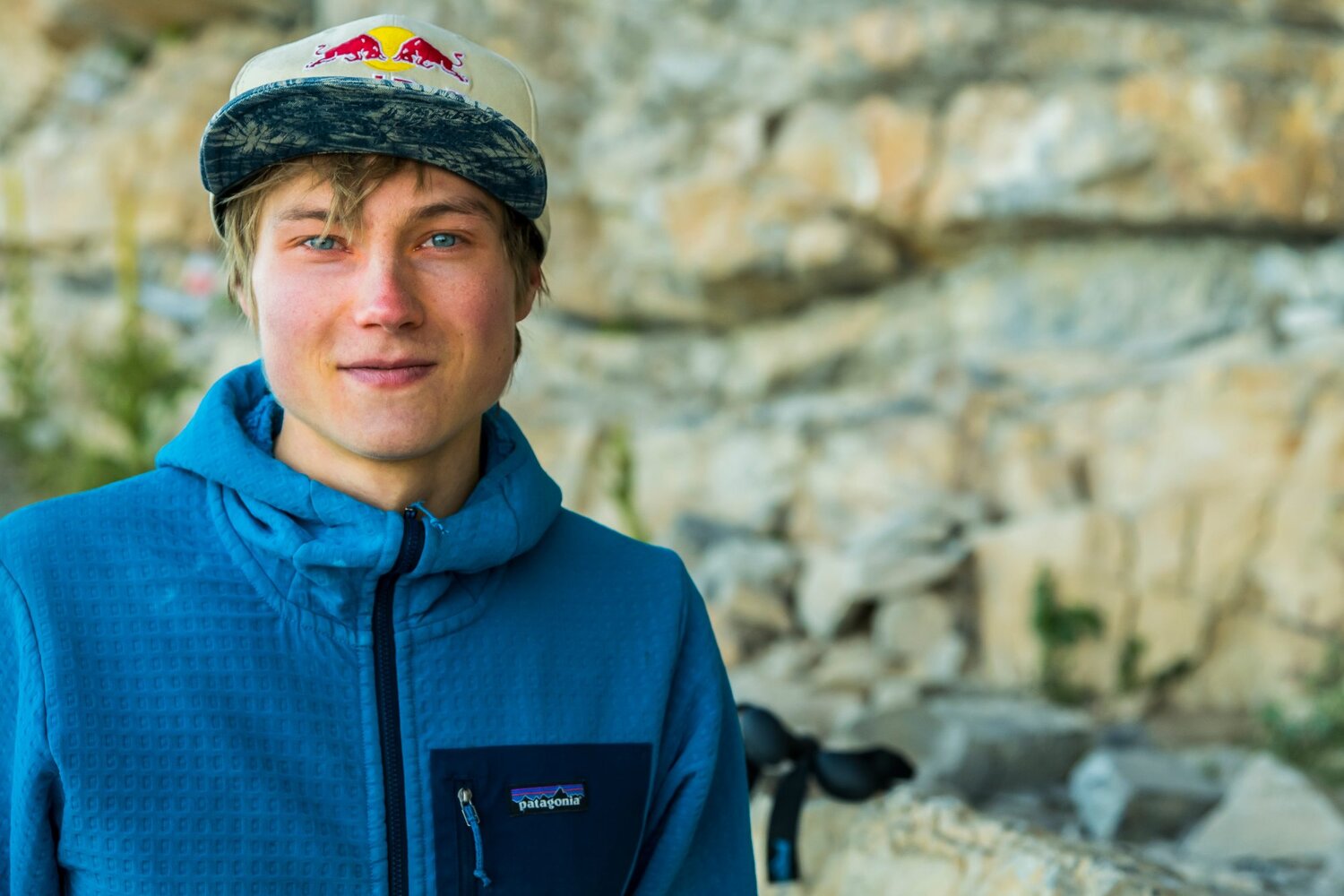
The outdoors is a fundamental part of our sport and necessary to keep us sane. This situation has taught us that there are bigger problems, but that there are always small things to be appreciated.
Is 9C now the new benchmark in sport climbing?
Well what even is a benchmark? In outdoor climbing, this grade might become something to aim for, yes, and there are more and more people climbing 9B and 9B+, so for now, this is the obvious progression for some people. But then it will be 9C+, which I’m sure is still possible with the progression in training and people finding the right routes and investing the time. Perhaps, for now, 9C is a benchmark, but I doubt it will stay that way for a long time and, in ten years, the situation may be very different.
For example, 25 years ago Action Directe had been climbed by just one person, Wolfgang Gullich in 1991, but now almost every strong professional sport climber wants to go and climb that route and many of them do, so it’s gone from being the pinnacle sport climb to one that many climbers consider as something to tick off. This was the same for Biographie. It was the world’s first 9A+, but now some people just want to go and add it to their collection, so this shows how things progress at this level.
In 20 years, I think Bibliographie may be viewed in the same way – as something of a historical piece.
How does it feel to be reconnecting with climbing on rock right now, and not plastic?
I haven’t properly been rock climbing for the past two years due to competitions, so it feels amazing to be reconnecting with rock. Of course there was the odd day here and there where I went on rocks and there was a week or two last year when I went to Spain for rock climbing. But compared to the usual amount I did, before I started competing, it wasn’t very much. Being back on rock made me realise how much I’ve missed rock climbing and how important it is for me to stay sane and psyched.
How has your relationship with natural spaces and being outside developed as Germany returns from lockdown?
The restrictions during lockdown make you realise how important being outdoors is. I’ve always had a good relationship with natural spaces, and I’ve learned over the past few years that protecting them is a big part of my job. One consequence of lockdown is that local areas have been impacted negatively, due to the huge numbers of people moving from indoor to crag climbing. This makes it even more important for all of us to protect our spaces. I see myself in the role of trying to make people aware of that.
How do you feel other climbers are seizing this moment, now that they can climb outdoors again?
It seems like all the other climbers have experienced a similar situation during lockdown. Everybody I spoke to seemed to have had the same realisation. The outdoors – and spending time outside – is a fundamental part of our sport and necessary to keep us sane. This situation taught us that there are bigger problems, but that there are always small things to be appreciated.
What it’s like not to travel for the first time in around a decade?
I can’t remember the last time I’ve spent so much time at home in Germany. If things had gone according to plan, I would have already been in Russia for the European Championships and various other places for training and competitions. For the past few years, I haven’t really climbed in the Frankenjura very much. I did pretty much all the hard routes and I thought there was nothing left for me to do. Being stuck at home made me rediscover the Frankenjura through bouldering. So I’m very thankful I had the chance to see my home area from a different perspective.
With so much time at home, how does that make you value your local climbing scene and community?
The Frankenjura climbing community has always seemed very special. Spending more time here gave me the chance to reconnect to the scene. It’s great to see that there are a few youngsters coming up, crushing it and climbing hard. And more importantly, it’s good to see that the upcoming generation is more open-minded in terms of issues like inclusion and acknowledging privilege.
What direction do you feel climbing is moving in? In a video I saw the Salewa CEO say, ‘the only mountain that still growing is the climbing hall’. You’ve spent a lot of time in Tokyo, where climbing is almost entirely gym based, so I’m interested to see how you feel about climbing’s indoor / outdoor future.
I do agree that the biggest growth we will see in climbing will be in indoor climbing. For the majority, the climbing gym is the most accessible place. Climbing is getting more and more mainstream and people see it as a good way to stay fit. Instead of going to fitness gyms, people go to climbing gyms, because they can get the same workout and it’s more fun.
Outdoor climbing will never die and it will always be the main part of climbing. But I do think there will be a bigger gap between indoor and outdoor in the future. The biggest opportunity for getting people into the sport will remain indoors, and as climbing becomes more popular, I think that there will be a bigger number of outdoor climbers pushing the grades. However, I think, in the future, we will not have people that are strong in both outdoors and competition climbing, and climbers will instead become more specialised.
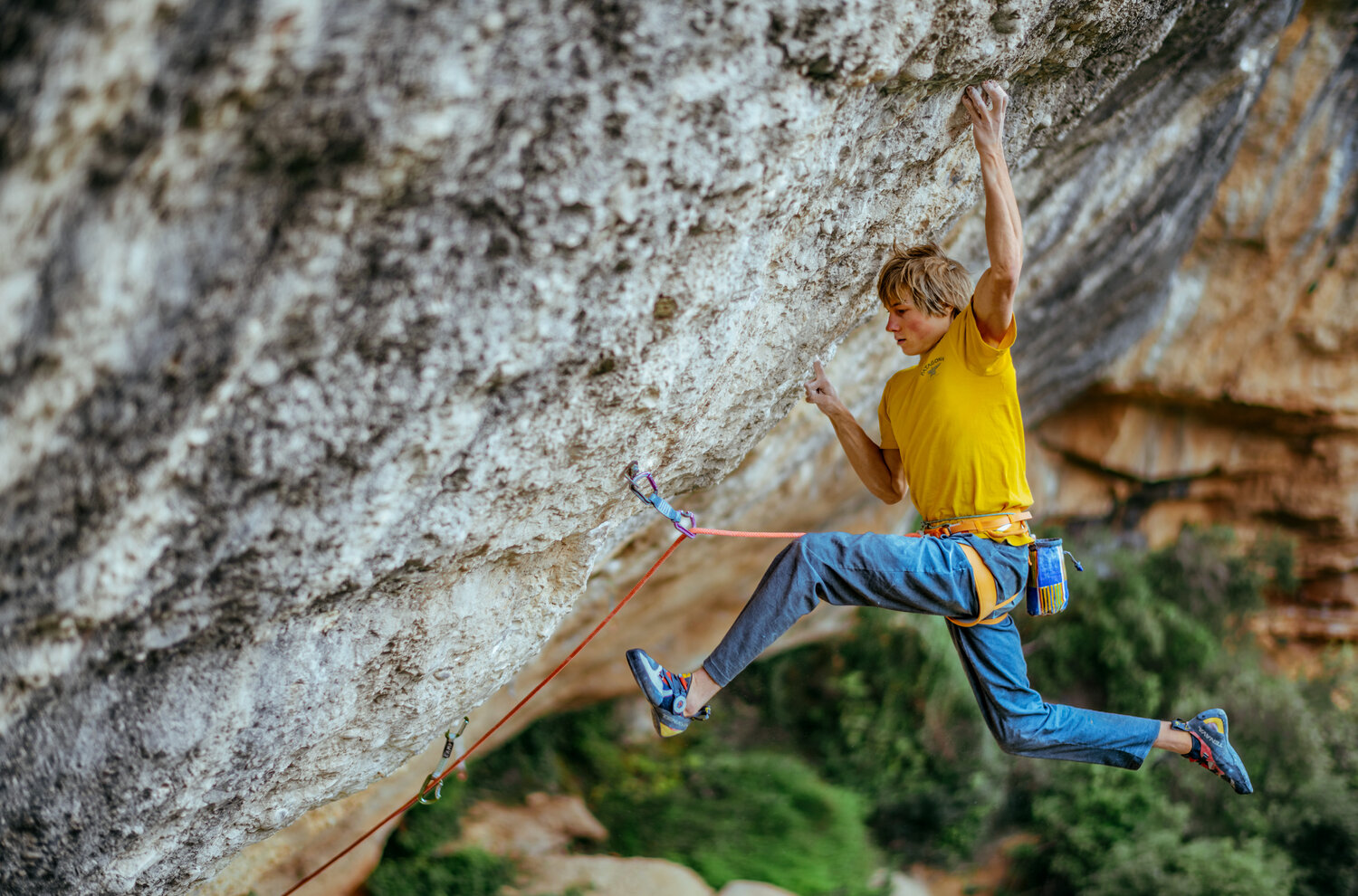
60 days of effort over three years © Ken Etzel
What direction do you want move as an athlete and what impact do you want to have in the sport / on the climb community?
At the moment I feel like I’m still in the ‘climbing hard’ phase, and I’m still hungry to push the limits in sport climbing. I’m well aware that this won’t last forever, though. Through the name I made for myself in the climbing community, I’ll hopefully be able to inspire change. There are various problems humanity is facing, climate change being probably the biggest one, and I think that people need to understand that we all have to do something about it. I will hopefully be able to make more people aware of that and be an example to them through my reach.
How long do you think you will keep sending at your best for, and what motivates you beside the send?
That is not an easy question to answer. I feel like, as a climber, I’m still progressing and improving. The right mindset is one of the most important things when climbing hard. And sometimes the right mindset comes through age and experience. Therefore, I’m confident that I’ll be able to push my limits for the next few years. I do realise, more and more though, that there are important things besides climbing, which I value. Trying to communicate a message about values, problems and possible solutions is becoming more and more motivating.
Climbing will always be one of the biggest parts of my life, but maybe in the future I will find other ways to inspire people as well.
You have spoken recently on your social channels about racism in climbing. What led you to do this?
The truth is, as a white, privileged member of a broken system, I’m contributing to the problem, whether I want to or not and whether I’m aware of it or not
My friend Liam Lonsdale, the climber and photographer, started a campaign called The Climber’s Pledge which asks people in the climb community to commit to a number of actions. These are to seek to understand the experiences of black people and underrepresented groups in climbing gyms and the outdoors, to leverage influence to actively confront racism within brands, sponsors and at the climbing gym and to speak out about racism whenever it is encountered.
In the past, I never thought of myself as a racist, but, the truth is, as a white, privileged member of a broken system, I’m contributing to the problem, whether I want to or not and whether I’m aware of it or not. I have been spending time rethinking a lot of these issues and informing myself, which is why I felt it was important to speak up. My comments sparked a huge debate, which I think is a good thing. Especially among the younger generation, there is a real eagerness to see the world differently and understand different opinions and the struggles of others.
How has being an ambassador for Patagonia influenced your thinking on environmentalism and topics around that?
When I became a Patagonia ambassador I was 17-years-old. I loved climbing, actually I was obsessed with it. My parents always took me outside when I was a kid so I felt a strong connection with nature and the environment. I was always in favour of protecting it, but I probably wouldn’t have done very much to actively back that up. I was just too obsessed with climbing and it felt more important to back then. I did share environmental campaigns on social media, but because I thought it was the right thing to do, rather than actually feeling the need to make people aware of the crisis we are in.
As I got older and as I shared more campaigns, watched more films including those from Patagonia. I experienced more and saw more of the environmental impact caused by humans and it changed me. Climbing is still incredibly important for me but, over the past few years, I have realised that there are other things of importance too. And the environment is probably the most important thing we should be looking after.
Because of Patagonia, I was quicker in figuring out that we need to do something. And that’s kinda good, because we are running out of time…
Don’t miss a single adventure
Sign up to our free newsletter and get a weekly BASE hit to your inbox
Other posts by this author
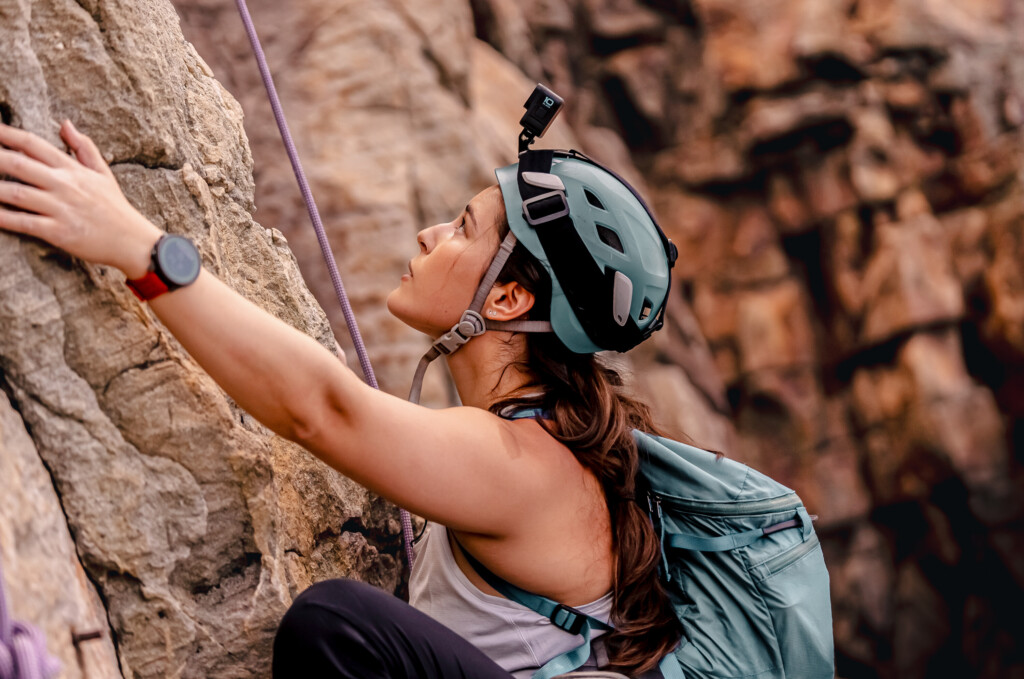
Photo Essay • BASE editorial team • Mar 18, 2024
Hunting happiness through adventure in Taiwan
BASE teams up with adventurer Sofia Jin to explore the best of Taiwan's underrated adventure scene.
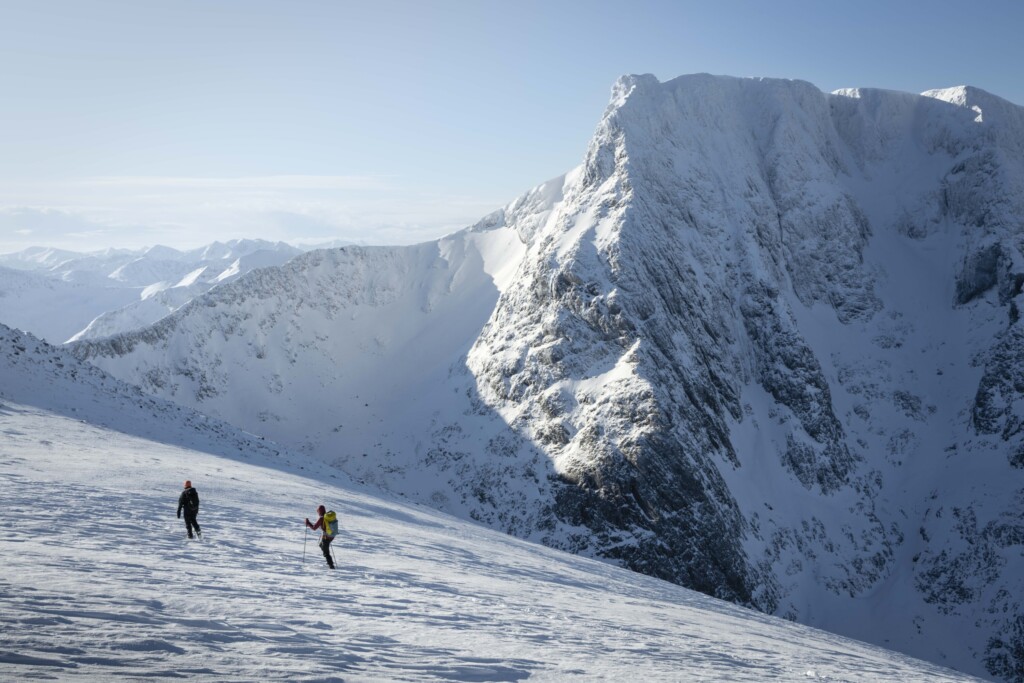
Story • BASE editorial team • Nov 21, 2023
Five Epic UK Climbs You Should Try This Winter
Craving a snowy mountain adventure? Inspired by the Garmin Instinct 2 watch (into which you can directly plan these routes), we've compiled a list of five of the best for winter 2023-24!

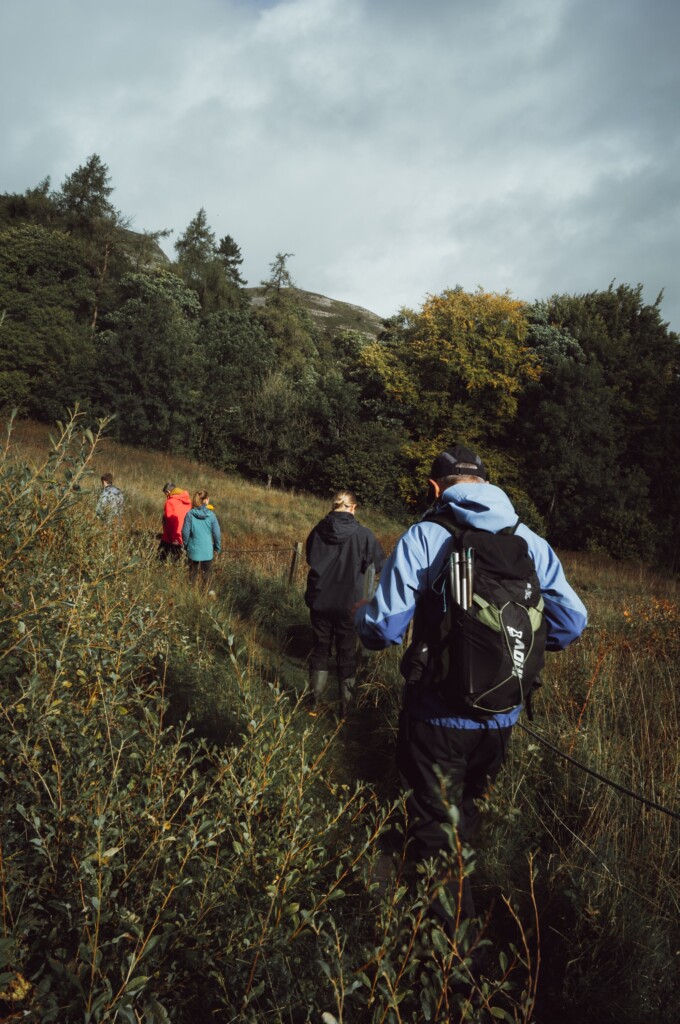
Spotlight • BASE editorial team • Oct 26, 2023
Kit Up, Give Back: How Outdoor Gear Rental Is Opening Up Adventure To Everyone
Gear rental initiative KitUp is on a mission to improve accessibility to the outdoors
You might also like

Photo Essay • BASE editorial team • Mar 18, 2024
Hunting happiness through adventure in Taiwan
BASE teams up with adventurer Sofia Jin to explore the best of Taiwan's underrated adventure scene.

Story • BASE editorial team • Nov 21, 2023
Five Epic UK Climbs You Should Try This Winter
Craving a snowy mountain adventure? Inspired by the Garmin Instinct 2 watch (into which you can directly plan these routes), we've compiled a list of five of the best for winter 2023-24!


Video • BASE editorial team • Jul 04, 2023
Zofia Reych On Bouldering, Life And Neurodivergence
Climbing is a driving force in Zofia's life, but for a long time, it also seemed to be a destructive one
